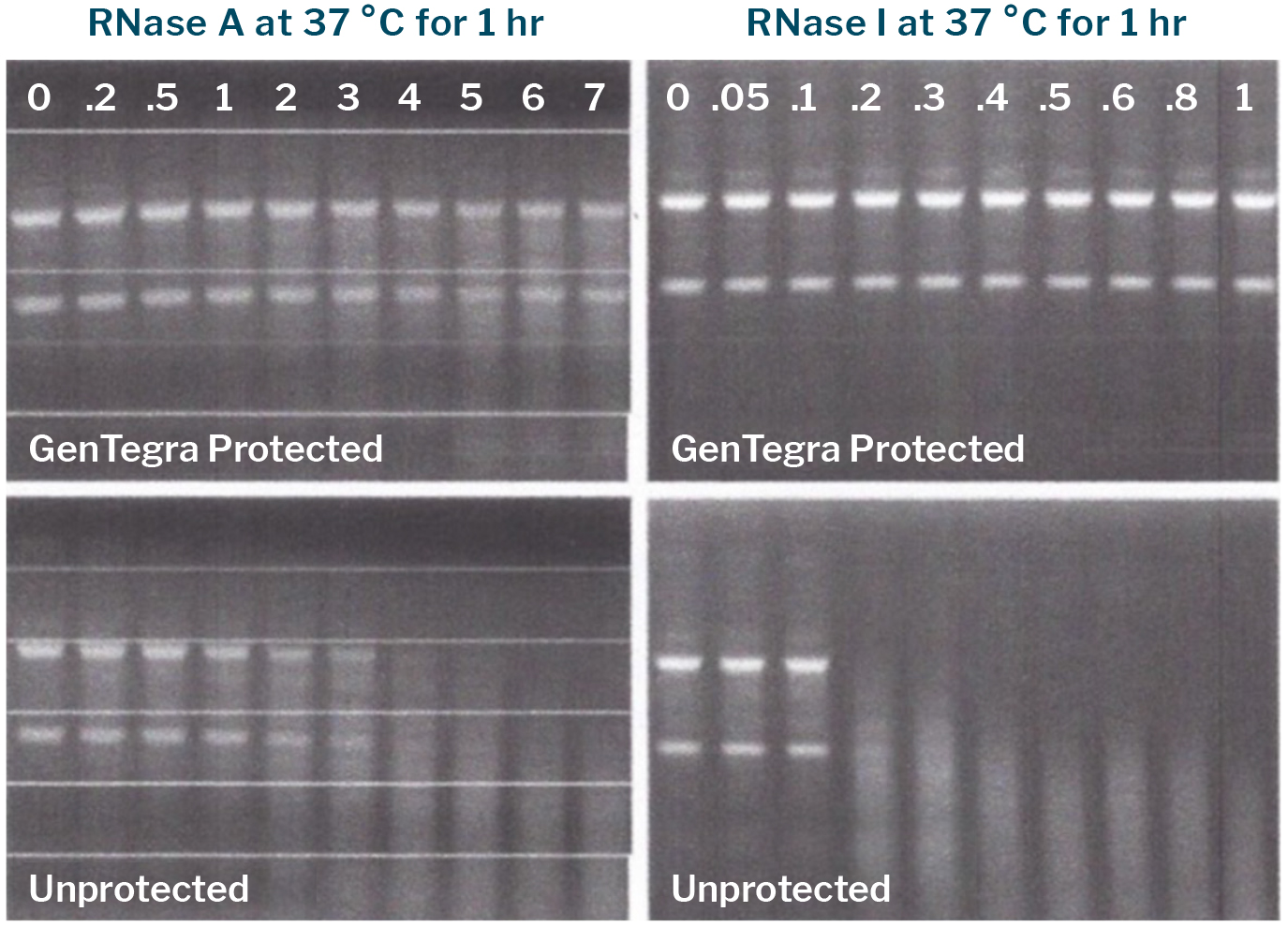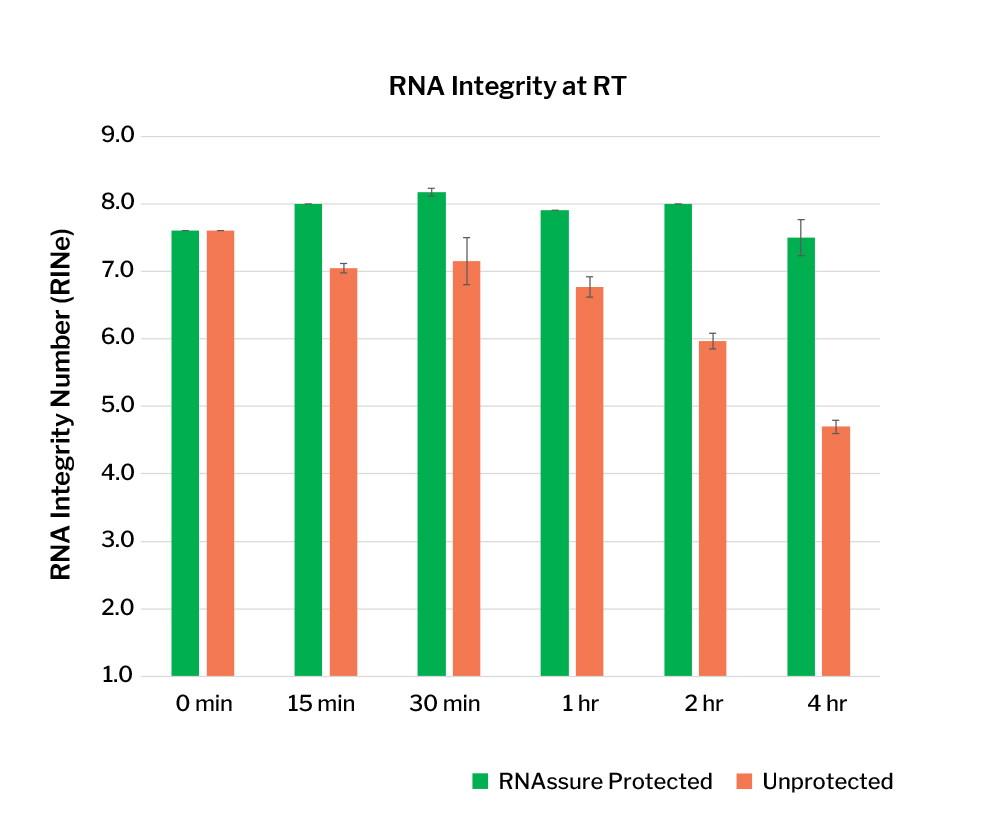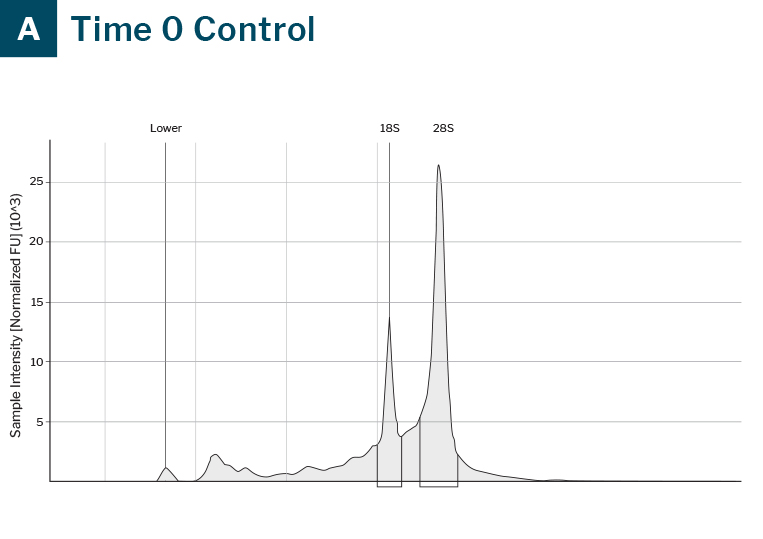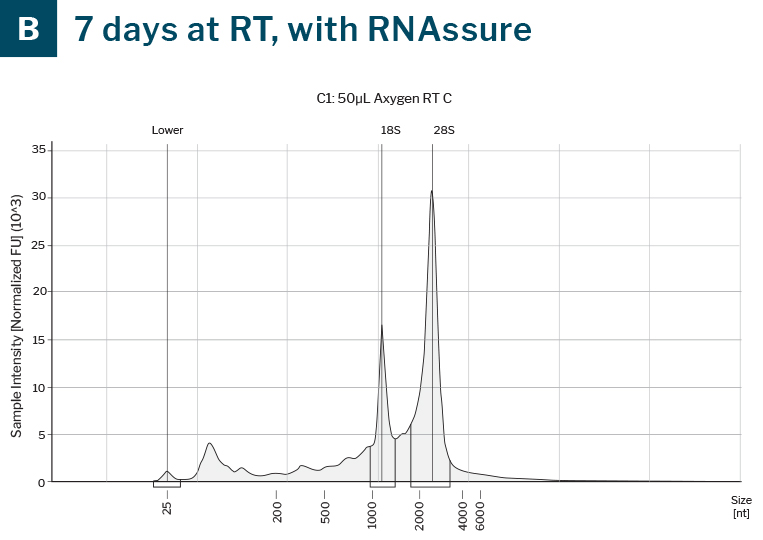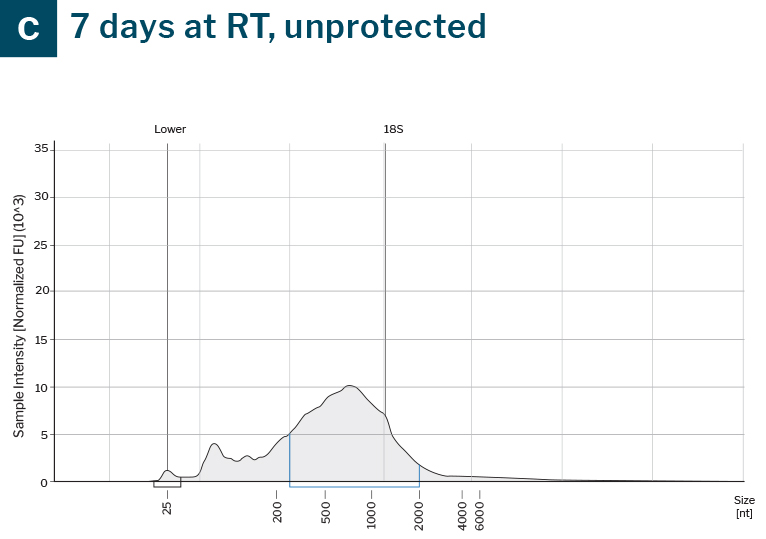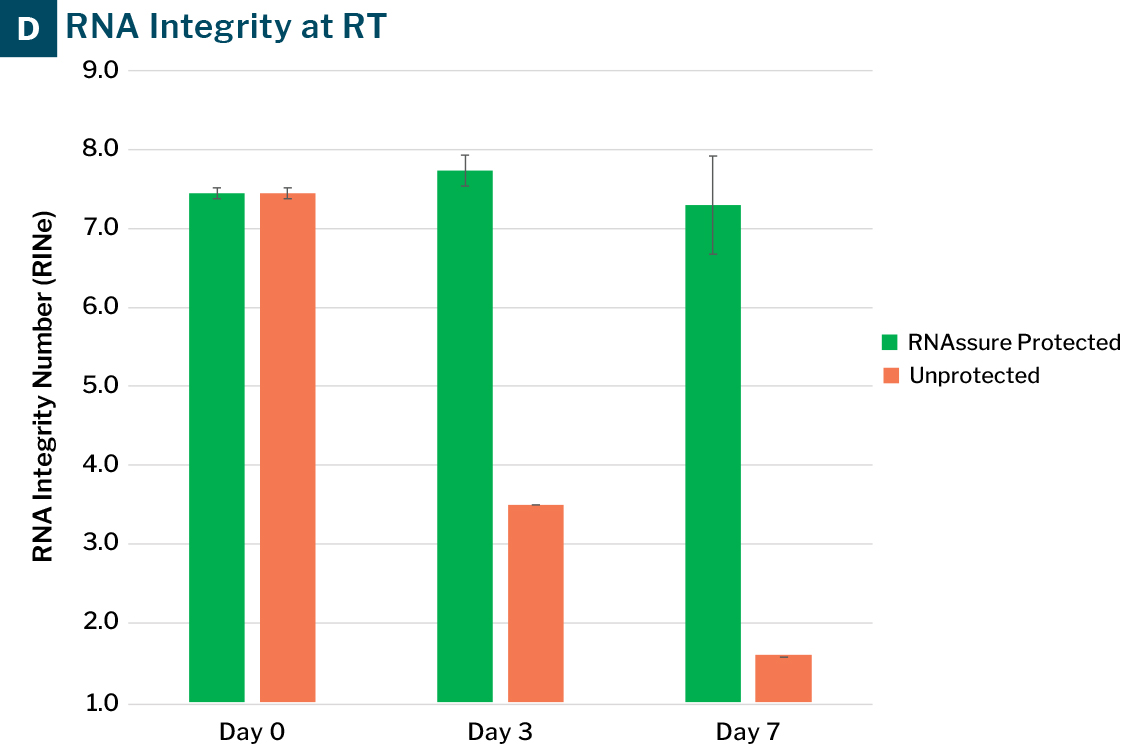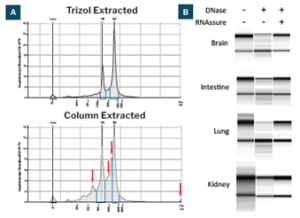RNAssure protects RNA during DNase Treatment. RNA was extracted from various mouse organs using either Trizol-based method or a leading commercial column-based kit A. While mouse liver RNA extracted by Trizol was free of gDNA contamination, column-based kit led to significant contamination of gDNA of various sizes (red arrows). B. RNA extracted from brain, intestine, lung, and kidney, using column-based method, was subjected to in-solution DNase treatment following manufacturer’s instruction (37°C for 30 min). After treatment, RNA from different samples showed moderate to severe degradation, evidenced by decreased 18S rRNA (top band) vs 28S rRNA (bottom band). In contrast, RNAssure helped significantly to maintain the RNA integrity during DNase digestion.



